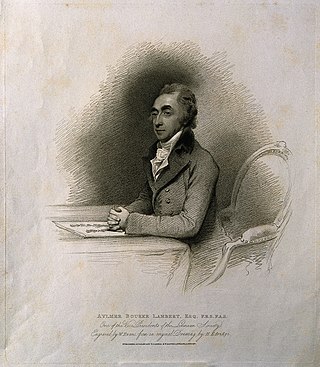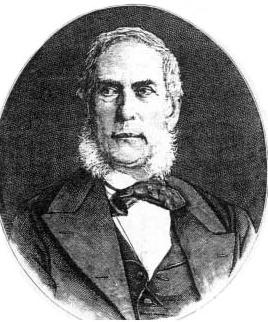
Aylmer Bourke Lambert was a British botanist, one of the first fellows of the Linnean Society.

Sir William John Macleay was a Scottish-Australian politician, naturalist, zoologist, and herpetologist.

The Platypezoidea are a superfamily of true flies of the section Aschiza. Their closest living relatives are the Syrphoidea, which, for example, contain the hoverflies. Like these, the adults do not burst open their pupal cases with a ptilinum when hatching, thus the Aschiza do not have the inverted-U-shaped suture above the antennae. They are, however, muscomorphs, thus have a particular type of pupal case resembling a rounded barrel and called puparium.

Blandfordia, commonly known as Christmas bells, is a genus of four species of flowering plants native to eastern Australia. Christmas bells are tufted, perennial herbs with narrow, linear leaves and up to twenty large, drooping, cylindrical or bell-shaped flowers.

The Linnean Society of New South Wales promotes the Cultivation and Study of the Science of Natural History in all its Branches and was founded in Sydney, New South Wales (Australia) in 1874 and incorporated in 1884.
Yule Island is a small island in Central Province, Papua New Guinea. It is located 160 km NW from Port Moresby, on the south coast of Papua New Guinea.

Károly Kalchbrenner was a Hungarian mycologist. He trained in theology early in life and became a priest in Spišské Vlachy, north-eastern Slovakia. His contributions include the publication of 60 papers and description of more than 400 fungi from Europe, Asia, Australia and South America. He wrote and illustrated the Icones Selectae Hymenomycetum Hungariae. Among those he later collaborated with are Ferdinand von Mueller in Victoria, Australia, John Medley Wood in South Africa, Mordecai Cubitt Cooke in England and Felix von Thümen in Austria. He was elected a full member of the Hungarian Academy of Sciences, and a corresponding member of the Linnean Society of New South Wales.

Propleopus is an extinct genus of marsupials. Three species are known: P. chillagoensis from the Plio-Pleistocene, and P. oscillans and P. wellingtonensis from the Pleistocene. In contrast to most other kangaroos, and similar to their small extant relative, the musky rat-kangaroo, they were probably omnivorous.

Platycepsion wilksoni is an extinct species of prehistoric amphibian, known from partial skeleton deposited in shale at the Gosford Quarry site of the Terrigal Formation in Australia. This specimen may represent a larval stage, as denoted by the presence of external gills, making it the first evidence of larval development in stereospondyls.
John William Brazier was a malacologist from Australia.

Corynocarpus is the only genus of plants in the family Corynocarpaceae and includes five species. It is native to New Guinea, Australia, New Zealand, New Caledonia, and Vanuatu.
Ironomyiidae is a small family of flies in the order Diptera. Historically, they had been included in the family Platypezidae, and includes three extant species within the single extant genus Ironomyia endemic to Australia and a number of extinct fossil genera from North America and Asia extending back to the Early Cretaceous.
Cyclotorna egena is a moth of the family Cyclotornidae. It is found in Australia, including New South Wales and Queensland.
Cyclotorna monocentra is a moth of the family Cyclotornidae. It is found in Australia.

Awateria is a genus of sea snails, marine gastropod mollusks in the family Borsoniidae. Most species in this genus have become extinct.

Amycterini is a tribe of beetles in the subfamily Cyclominae.
Planipapillus impacris is a species of velvet worm in the Peripatopsidae family. This species is oviparous, has 15 pairs of legs, and lives in decaying logs. It is found in New South Wales, Australia.
Arthur Andrew Hamilton, (1855-1929) was an Australian botanist.

Roger Charles Carolin is a botanist, pteridologist and formerly an associate professor at Sydney University. He was appointed as a lecturer in botany at the University of Sydney in 1955 earned a Ph.D from Sydney University in 1962 with a thesis on the floral morphology of the campanales, and retired as an associate professor in 1989.
Westralichthys is an extinct monospecific genus of dunkleosteoid from the Late Devonian: Middle Famennian stage from Western Australia. It is estimated to be 3 meters (9.8 ft) long.











